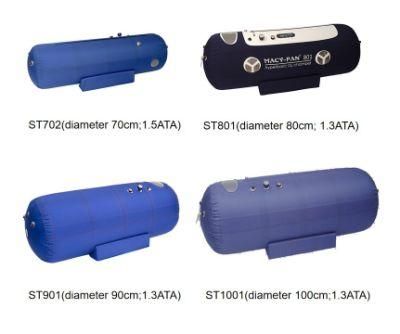
Hyperbaric Chamber 1.5 ATA Beauty Capsules One Person Use
Shanghai Baobang Medical Equipment Co., Ltd.- Customized:Customized
- Certification:CE, ISO9001, ISO13485
- Condition:New
- Tilted:Non-Tilted
- Folded:Folding
- Using Ambient:Indoor
Base Info
- Model NO.:ST702
- Power Supply:Manual
- Color:White
- Material:TPU
- Warranty:1 Year
- Transport Package:Cartons
- Specification:28",32",36"
- Trademark:MACY-PAN
- Origin:China
- Production Capacity:300 Sets,Month
Description
Basic Info.
Model NO. ST702 Power Supply Manual Color White Material TPU Warranty 1 Year Transport Package Cartons Specification 28"/32"/36" Trademark MACY-PAN Origin China Production Capacity 300 Sets/MonthProduct Description
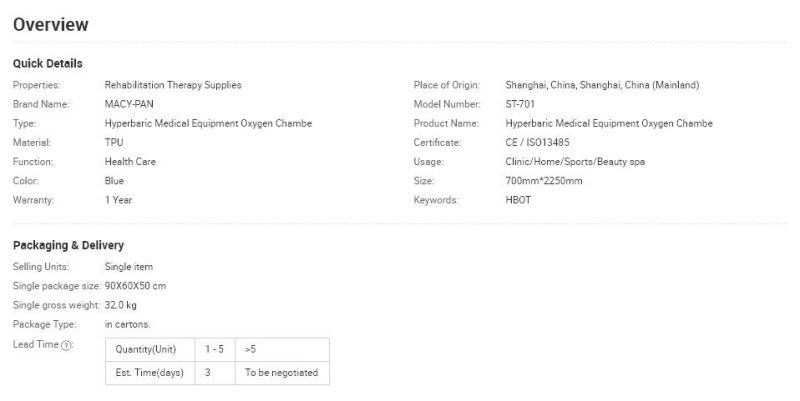
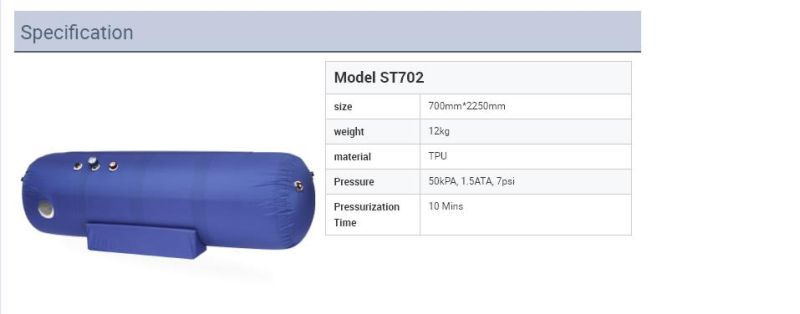
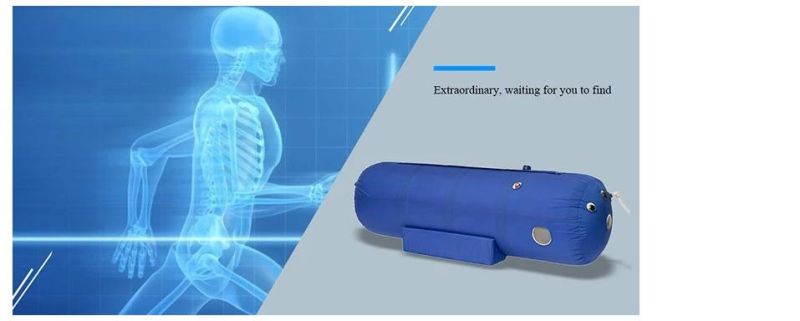
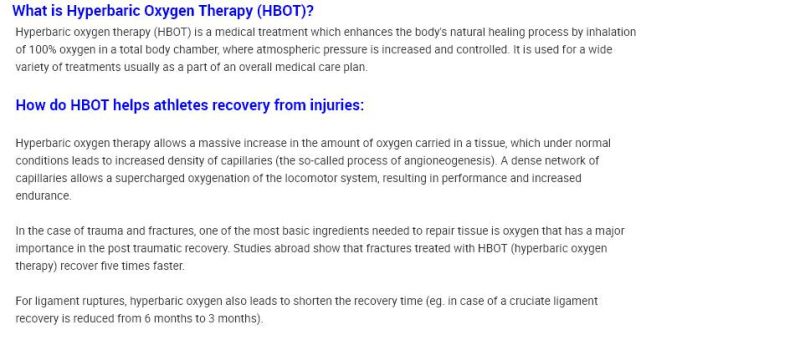
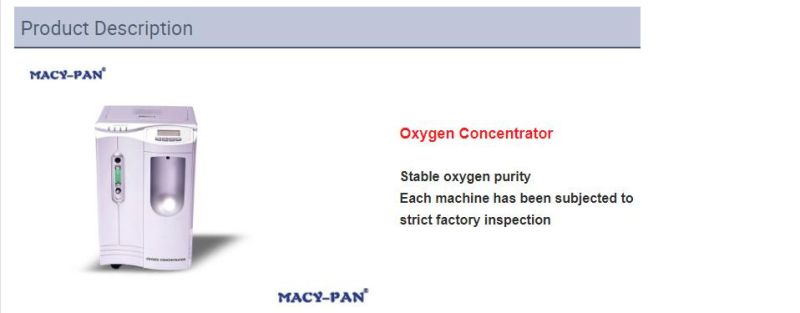
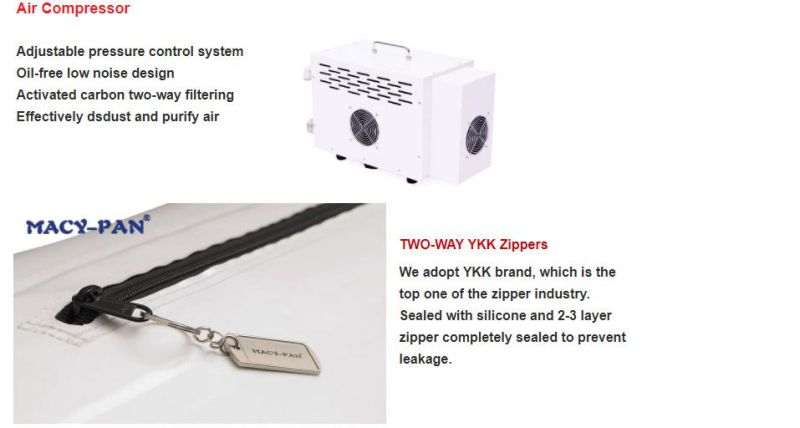

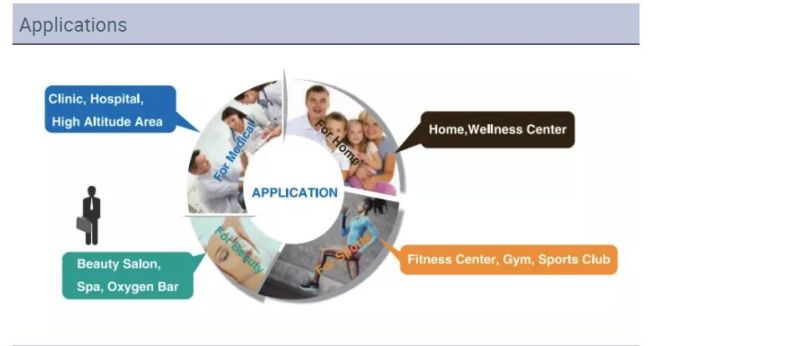

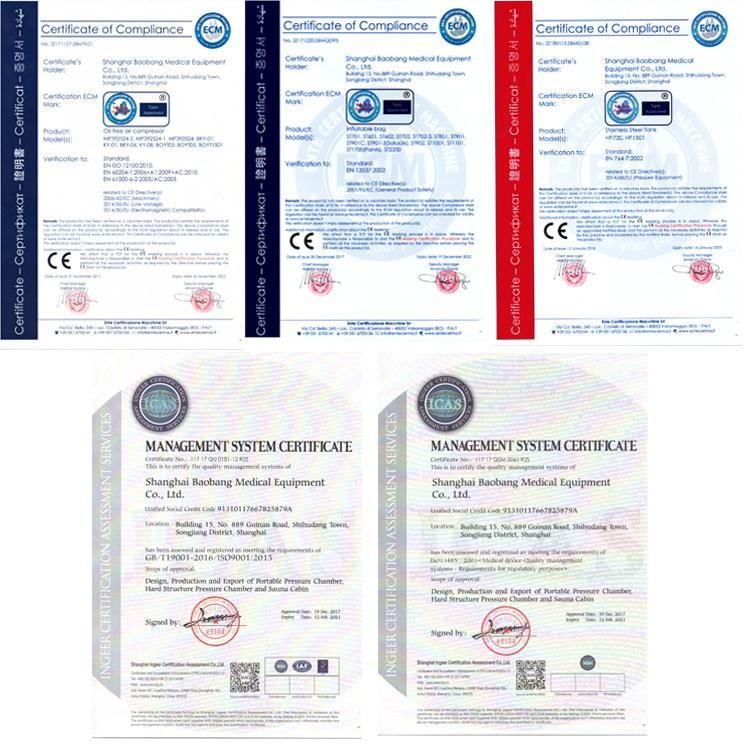

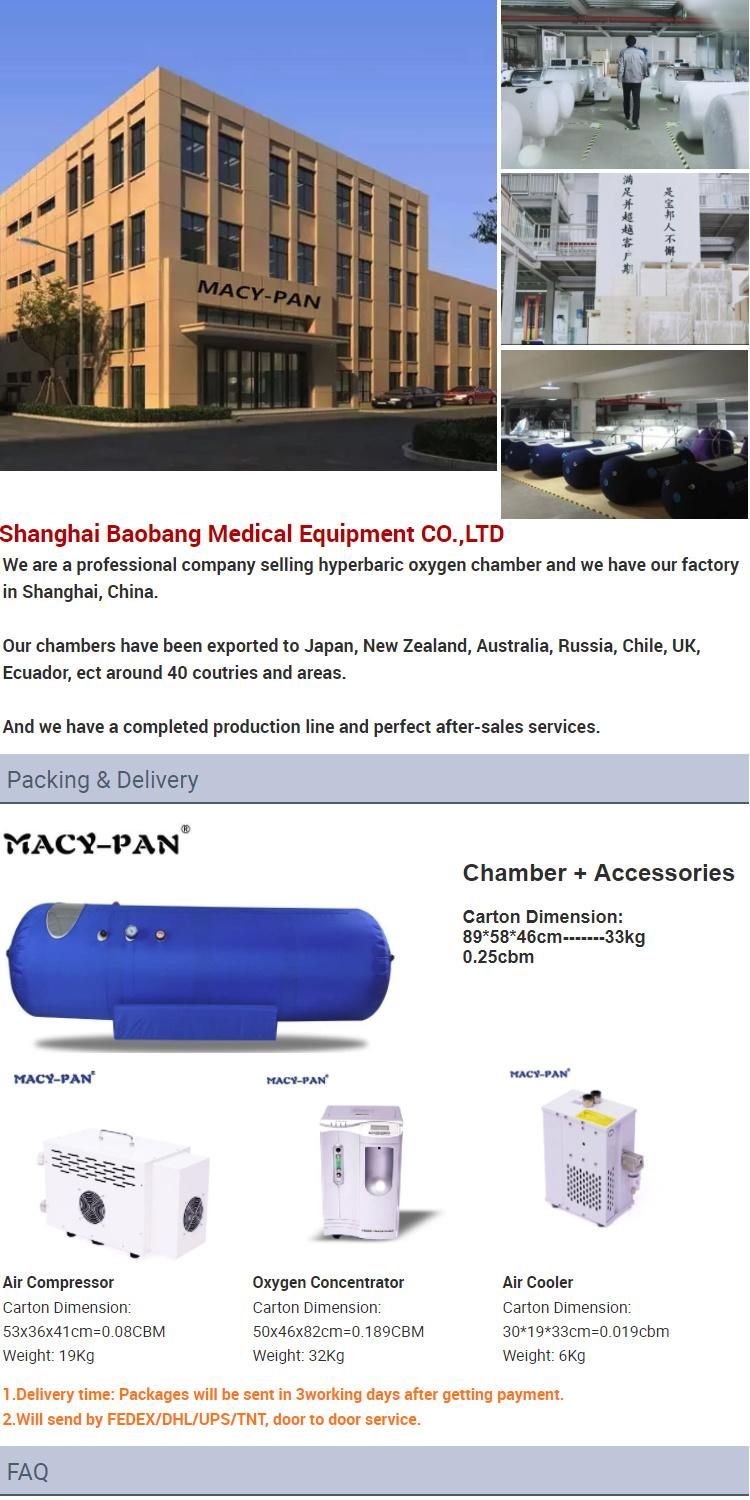
Q1. HOW DOES HYPERBARICS WORK?
A: Hyperbarics is a technology in which the air pressure in the environment is increased. When a person's body is placed in a more pressure environment, it absorbs more oxygen molecules per volume of compressed air.The body normally transports oxygen via the hemoglobin of the red blood cells. By increasing the air pressure, oxygen is then driven into the body's fluids, allowing a super-saturation of tissues and organs with oxygen. The increased pressure infuses the body with oxygen, even reaching injuries with damaged circulation.
Q2. HOW LONG IS THE TREATMENT?
A:Usually 60-90 minutes for each time, 5-7 Times per week. Doctors recommend using it continuously every day, but one time per day is enough.Q3. Is HBOT safe?A: Hyperbaric oxygen therapy is prescribed by a physician and performed under medical supervision. Although there are minor risks like all medical treatments, overall hyperbaric oxygen therapy is extremely safe.
Q4. Are there any side effects?A: Portable Hyperbaric Oxygen Chamber is completely safe. The most common side effect is discomfort to the ears caused by pressure changes. To minimize the risk, patients learn to promote the adequate clearing of your ears during pressurization. Some patients may feel tired and dizzy after using hyperbaric chamber first time. It's a good signal that Hyperbaric Oxygen Therapy will speed up the metabolism of your body. They are usually good signs in indicating detoxification.
When the chamber is pressurizing, your ears will feel the change in pressure inside the chamber. You might feel a little painful in your ears, to equalize the pressure and avoid the feeling of fullness in your ears, you can clear your ears by chewing (gum or food), swallowing, yawning. Once the chamber is fully pressurized, this feeling will return to normal. You can sleep, meditate, read, watch movie, listen to music, etc.
Q5. How does hyperbaric oxygen help brain injury or stroke?
A: When cells in the brain die, either from trauma or lack of oxygen, blood plasma leaks out into surrounding brain tissue causing swelling and reducing blood flow. These otherwise normal cells go dormant because they can't function without the appropriate amount of oxygen. HBOT dramatically increases the oxygen carried in the blood plasma, making oxygen available to heal damaged capillary walls, preventing plasma leakage and reducing swelling. As the swelling decreases, blood flow can be restored to the dormant tissue (neovascularization) and these cells then have the potential to function again.Q6. What conditions does HBOT treat?Autism
Cerebral Palsy
Lyme Disease
Migraine
Multiple Sclerosis
Near Drowning
Recovery from Plastic Surgery
Sports Injuries
Stroke
Traumatic Brain InjuryAir or Gas Embolism
Carbon Monoxide Poisoning
Compartment Syndrome/Crush Injury/Other Traumatic Ischemias
Decompression Sickness (Bends)
Diabetic and Selected Wounds
Intracranial Abscess
Necrotizing Soft Tissue Infection
Osteoradionecrosis and Radiation Tissue Damage
Osteomyelitis (Refractory)
Skin Grafts and (Compromised) Flaps
Thermal Burns
